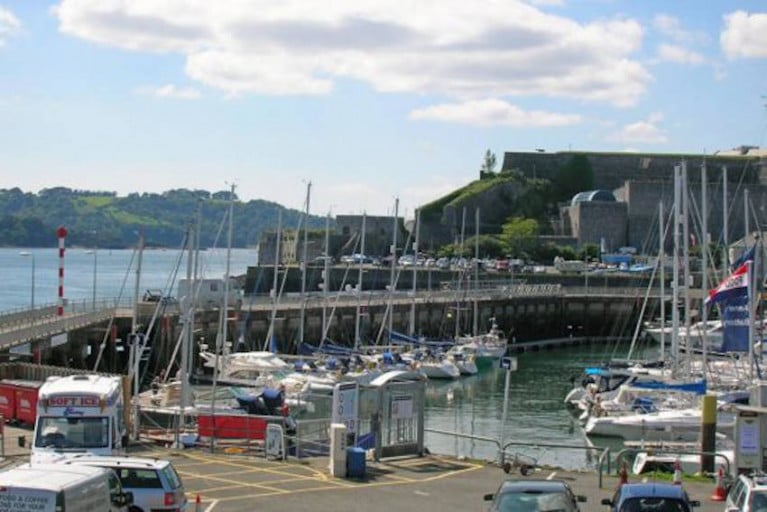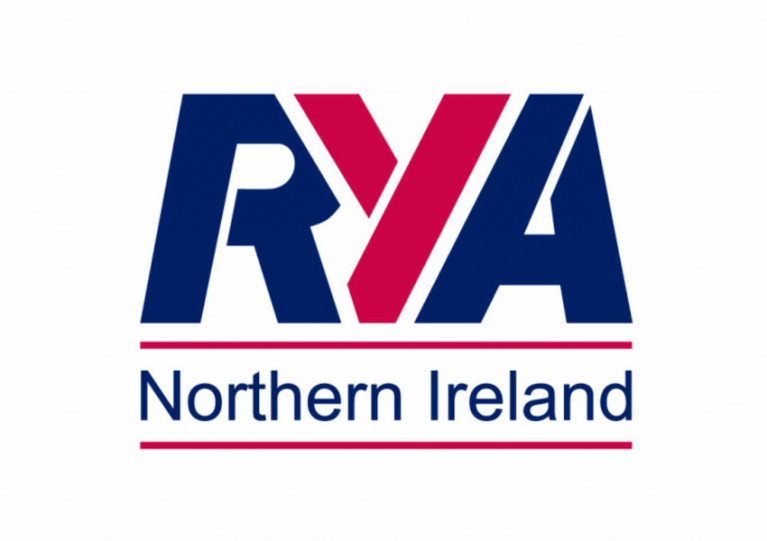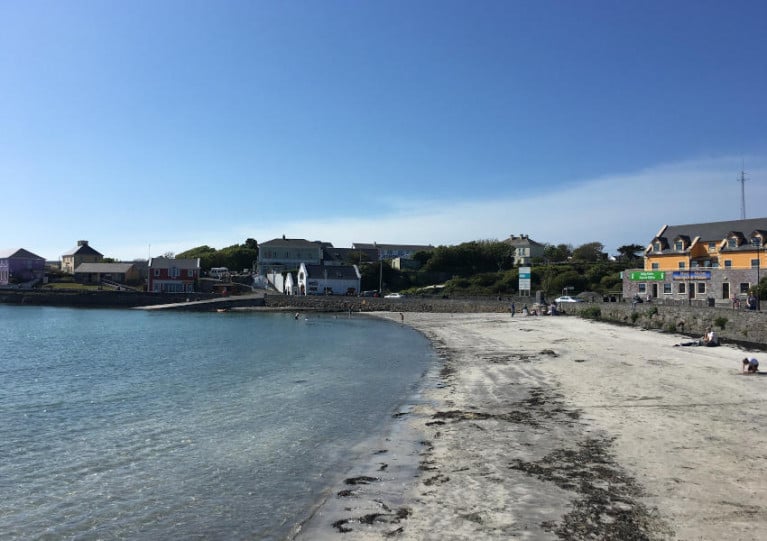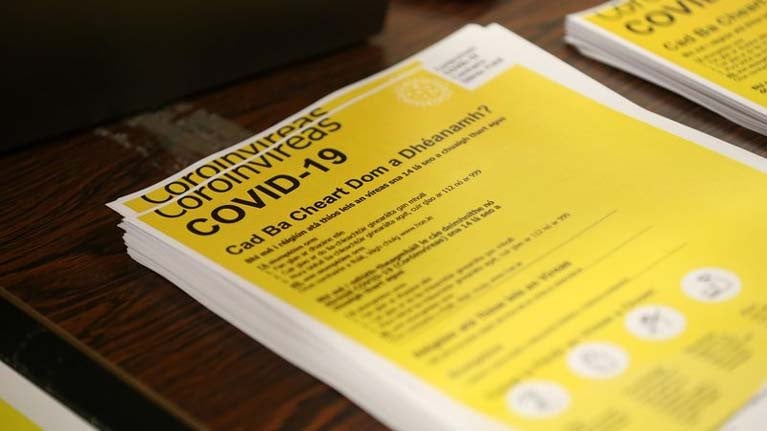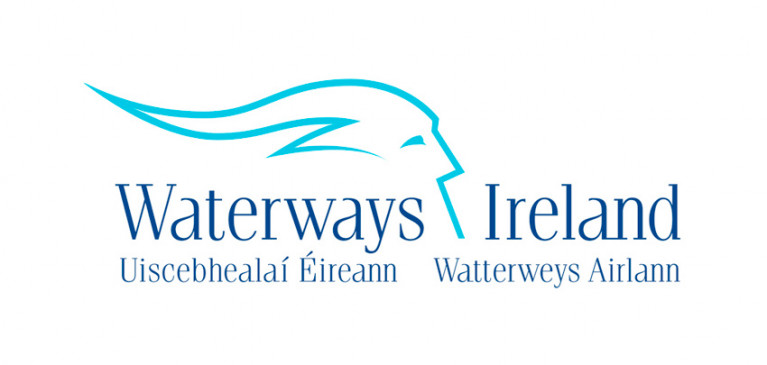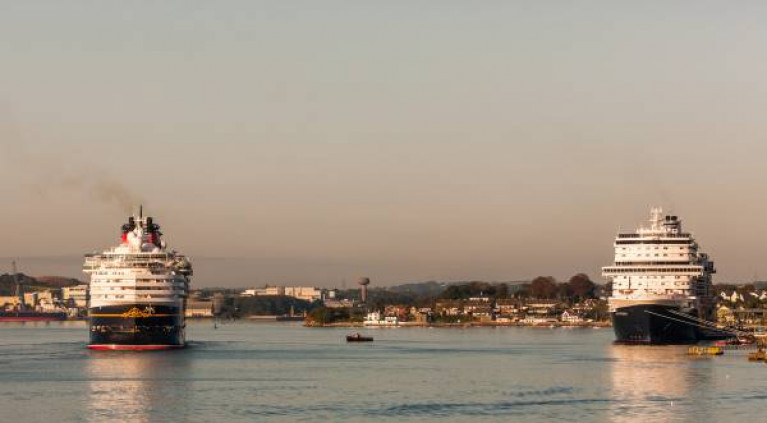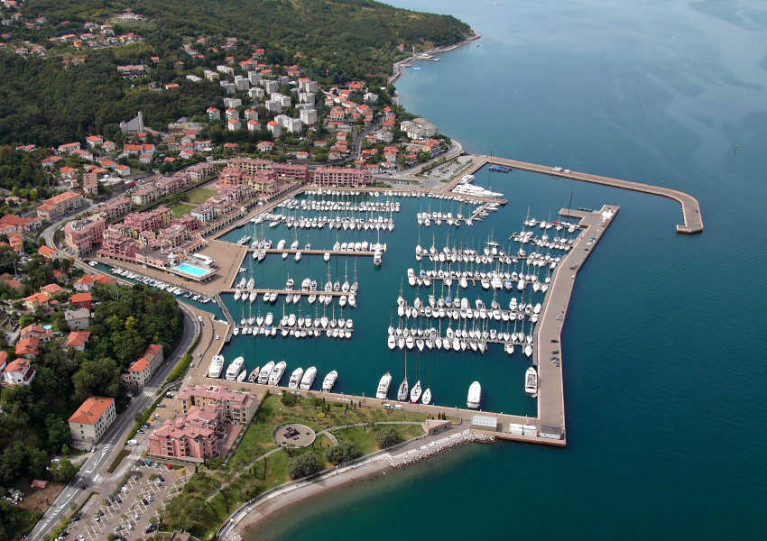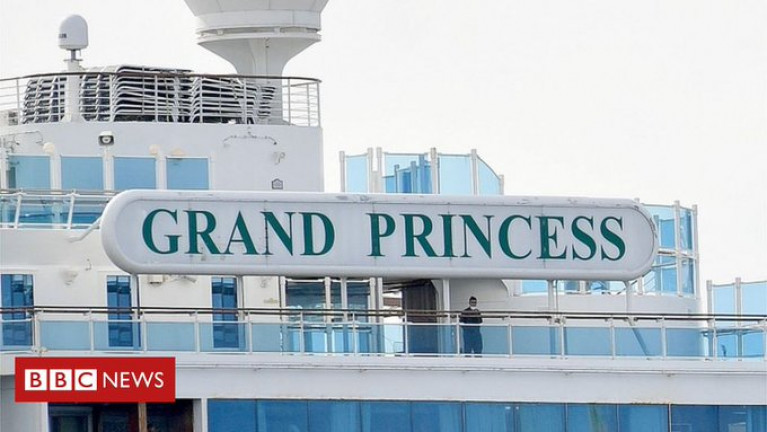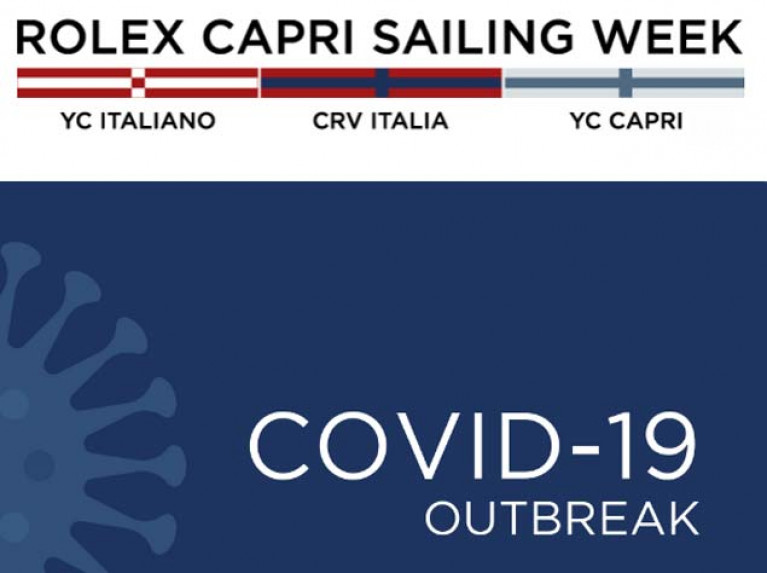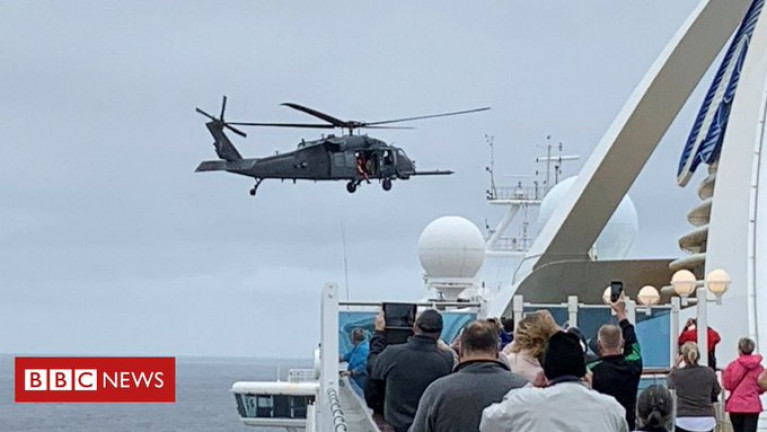Displaying items by tag: Coronavirus
OSTAR & TWOSTAR Races Postponed To 2021 Over Covid-19 Concerns
Yachting Monthly is reporting that organisers of the OSTAR and TWOSTAR transatlantic races have postponed this year’s events until 2021 due to the Covid-19 pandemic.
The single-handed and two-handed fleets had been scheduled to set sail from Plymouth on Sunday 10 May in what is their 60th anniversary year, hosted by the city’s Royal Western Yacht Club.
In a statement issued on Monday afternoon (16 March), the RWYC said it aims to run the events “over a similar period in 2021”.
It added: “Since this will require compliance to the latest edition of Word Sailing OSRs for Cat 1 yachts, there will be a new Notice of Race, which will be issued in due course.”
Updated Wednesday 18 March to include details of the RWYC's official statement.
The RYA Northern Ireland says it is keeping developments regarding the COVID-19 virus in Northern Ireland “under close review”.
In a statement, the RYANI says it “will follow the guidelines set by the Northern Ireland Assembly and UK Government, and the advice provided by Public Health Agency Northern Ireland”.
“This continues to be a developing situation and RYA Northern Ireland will keep local clubs and centres fully informed of any changes.”
The RYA website is updated with its latest advice on Covid-19, which includes specific advice for affiliated clubs and Training Centres. The RYA will also update affiliated clubs via the RYA Club Room newsletter if and when this advice changes materially. Updates on the situation will also be provided via the RYA Wavelength newsletter.
As earlier reported on Afloat.ie, yesterday (Sunday 15 March) Irish Sailing called for “all organised sailing activity to cease with immediate effect” subject to review on Sunday 29 March, based on Government advice on social distancing and mass gatherings.
Galway Bay FM reports that residents on Inis Mór in the Aran Islands are appealing for tourists and other visitors to stay away for the next fortnight to limit the spread of COVID-19.
Comharchumann Forbartha Árann Teo issued a statement saying residents have overwhelmingly voted in favour of limiting travel to or from Inis Mór until Sunday 29 March.
In addition, islanders are asked to avoid travel to and from the mainland for the rest of this month’s containment period.
Irish Sailing continues to monitor and follow the HSE advice on Covid-19 on a daily basis. As always, the health and safety of our members and the sailing community is of paramount importance.
The Government has now asked bars and pubs to close from this evening until 29th March and we would advise that bars in clubs should conform with immediate effect.
Since the guidelines issued by An Taoiseach last Thursday, we have been in discussions with a number of stakeholders from both competitive and training backgrounds, and have concluded that social distancing is not only difficult to achieve onshore from an organisers’ perspective but also difficult to achieve at a personal level on the water.
For double handers and/or keelboats requiring two or more crew, it is not possible. Even for organised activities involving single-handers requiring safety cover (with two people in the safety boat), it is not achievable.
For this reason, Irish Sailing advises that all organised sailing activity should cease with immediate effect and will be reviewed on 29th March. We will continue to monitor Government announcements and update the advice accordingly.
Flood-Hit Facilities Remain Closed, Says Waterways Ireland
Waterways Ireland advises all masters of vessels and water users that inland waterways facilities that are currently closed following on from the recent and ongoing flood event will remain closed until further notice.
The locks and bridge opening times on the Shannon Navigation will remain at winter opening times until Friday 29 March. Lock and bridge opening times will remain as weekdays from 9am to 12.30pm and Sundays from 10am to 12.30pm.
Waterways Ireland is also encouraging all masters of vessels and water users on all navigations to continue to follow the guidelines which have been provided by the health authorities regarding the COVID-19 outbreak.
In other news, the Green E Buoy at Goat Island on Lough Derg is now back on station.
As Coronavirus Spreads Fears for Cruise Travel to Cork Harbour
Cork Harbour could fall victim to a drop in cruise travel as a result of the novel coronavirus outbreak.
As EchoLive.ie reports, the Centres for Disease Control and Prevention (CDC) has issued an update to anyone with imminent cruises booked, advising all travellers, particularly those with underlying health issues, to defer all cruise ship travel worldwide.
The advice follows the news that cruise ship, the Grand Princess, was held 30 miles off the coast of San Francisco for several days after 21 people tested positive for Covid-19. Passengers on the Grand Princess are set to be evacuated in Oakland, California (plus RTE News) over the next two to three days and will be quarried for a 14 day period.
The CDC has concluded that cruise ships pose a significant threat in spreading the virus. “Recent reports of Covid-19 on cruise ships highlight the risk of infection to cruise ship passengers and crew. Like many other viruses, Covid-19 appears to spread more easily between people in close quarters aboard ships,” the organisation said.
More on the story here which added there could be an impact on the Port of Cork which welcomed a record 100 cruise ships into Cork Harbour last year.
Afloat adds the majority of cruise calls take place at Cobh where a French Navy frigate recently docked alongside the cruise-orientated pontoon. In addition cruise ship's dock at Ringaskiddy (Deepwater Berth) whereas smaller ships navigate upriver to Cork city centre to berth at the South Quays..
J/24 European Championship Cancelled Over Coronavirus Concerns
The International J/24 Class Association has agreed with the Italian Federation of Sailing to cancel the 2020 J/24 European Championship, which had been scheduled for 29 April to 5 May 2020 at Porto San Rocco near Trieste in Italy.
“After consulting the members of the organising committee and the J/24 class, cancelling the European Championship is the responsible and wise decision to make at this time,” said Roberto Sponza, 2020 J/24 European Championship event chairperson.
As reported yesterday on Afloat.ie, all sailing events in Italy have been suspended until Friday 3 April as the country enforces strict measures to control the spread of the virus.
“At this time, we must confront the possibility that these restrictions within Italy could be extended or ended,” said Sponza. “Other European governments may impose similar restrictions on travel in the near future.
“All these restrictions have impact on the competitors who have registered for this year’s European Championship.”
The cancellation will also apply to the 2020 Italian Open National Championship scheduled for May 28-June 2 at Porto San Rocco.
All eyes are now on the World Cup Series event in Genoa, which is expected to begin on Sunday 12 April and represents the final opportunity for Irish sailors and others to grab a spot at Tokyo 2020.
In the US state of California, authorities are preparing to receive passengers aboard a virus-hit cruise liner held off San Francisco.
Nineteen crew members and two passengers, reports BBC News, on the Grand Princess have tested positive for Covid-19.
The vessel, which is carrying about 3,500 people from 54 countries, has docked in Oakland after five days stuck offshore.
The US has reported more than 560 coronavirus cases and 24 deaths.
Cases of the virus have been recorded in 34 states plus Washington DC.
For more click here.
In addition earlier today, RTÉ News understands there are a number of Irish citizens on board the Grand Princess and that one of the senior crew members is Irish.
Since BBC's coverage this evening an updated RTE story was posted.
Due to the number of coronavirus cases reported in Italy as a consequence of the global COVID-19 epidemic, the Italian Sailing Federation has suspended all events and competitions on a national basis until next April 3rd.
Only after that date, will organisers be able to confirm if the ROLEX Capri Sailing Week will regularly take place.
The prestigious 66th event was due to be held on the island of Capri and in the gulfs of Naples, Salerno and Gaeta. The week is slated to include the ORC European Championship 2020, and the Italian Offshore Championship 2020 as part of the IMA Mediterranean Offshore Challenge 2020-2021.
Meanwhile, in Ireland, the sports national governing body released a statement last Friday to say that ‘following HSE advice’ on Coronavirus, all events are going ahead as scheduled'.
The statement also says “Should the position escalate and we feel that any updated advice will necessitate restrictions on sailing events in Ireland, we will send out a notice".
A cruise ship flagged in the US is understood to be carrying a number of Irish citizens, as well as 21 confirmed coronavirus cases, has been given permission to dock, with its passengers to disembark in Oakland on Monday.
According to RTE News, nineteen crew members and two American passengers are confirmed as having the virus on board the Grand Princess - out of 45 people tested.
(Afloat adds last month a sister of the 'Grand' class cruise ship, Diamond Princess docked in Japan from where British and Irish passengers were evacuated to the UK for quarantine).
The department of Foreign Affairs has said the consulate in San Francisco is in touch with local authorities and monitoring the situation closely.
Authorities have ordered the vessel to remain at sea off the coast of San Francisco, where it was due to dock yesterday following a 14-day trip to Hawaii, after it emerged that a passenger on a previous voyage had contracted the virus and later died.
The vessel will instead go to nearby Oakland on Monday and begin disembarking passengers in need of "acute medical treatment," vessel owner Princess Cruises said in a statement.
The ship's crew will be quarantined and treated aboard the ship, the company added.
For more including details of another cruise ship effected by the outbreak and more click here.


























